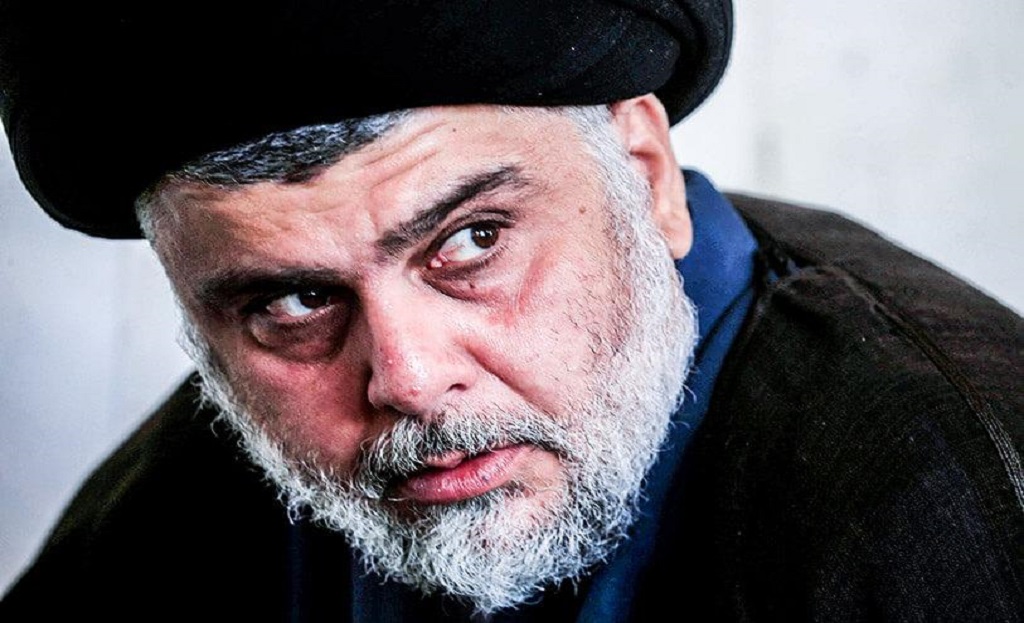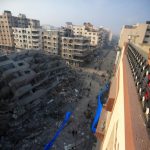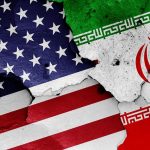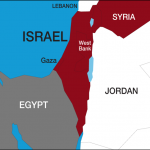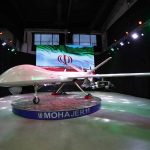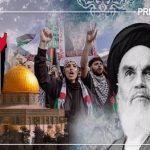The developments in Iraq have entered a new phase with violence and bloodshed since Monday afternoon, after Moqtada Sadr announced his resignation from politics.
Analysis:
Faraan: Muqtada al-Sadr’s criticisms and objections to the current situation in Iraq with the slogan of reformism started a month ago. In the initial step, he targeted the constitution, the election law and legal institutions, including the Iraqi parliament and the judiciary, and tried to force the law to surrender by resorting to street camping. However, these actions took on the color of blood when he announced on Monday evening that he was withdrawing from the world of politics, along with the insistence of some of his extremist supporters to continue what they call reforms.
The announcement of Sadr’s resignation from politics without asking his supporters to leave the streets became his new justification for the continuation of the last month’s movement, and with the destruction of public property, the use of weapons and the creation of an atmosphere of terror, this movement entered a new phase of violence and conflict. After the announcement of Sadr’s withdrawal from politics and the start of the conflicts, his announcement of a hunger strike in what he called the support of his supporters against rival attacks made the situation tenser and increased the motivation of Sadr’s extremist supporters to appear on the streets and resort to violence. According to an official statistic, at least 20 deaths have been left on the hands of the Iraqi people until the morning of Tuesday 3rd, less than 15 hours after the announcement of Sadr’s resignation from politics.
Sadr’s background shows that this is not the first time that he has announced that he will stay away from politics, and based on this history, it can be assumed that this will not be the last time. Perhaps it is due to this recognition of Sadr’s spirit that his radical supporters have preferred to insist on strikes and street clashes. As the night and midnight passed since the announcement of withdrawal on Monday afternoon, the Green Zone witnessed the unveiling of some new weapons in the confrontation with the security forces. Both the amount of weapons and their new types by the extremists will be removed from the warehouses and hiding places, and the scope of violence will expand more than what has happened in the past hours in other provinces of Iraq.
Perhaps one of the only solutions for the future to get out of the current violent situation is for Sadr to clarify the duties of his followers directly and without any ambiguity. If he considers the story of his pursuits in the world of politics to be closed, he should officially inform them of this issue. Perhaps Sadr’s presence in the national talks and returning from what he called a hunger strike is the first step in this regard and restoring peace to Iraq. What is certain is that the surprise and inconclusiveness is the inevitable fate of extremist fans and supporters. When the leader of the movement withdraws from politics, insisting on being on the street and resorting to violence by some extremist followers will naturally have no effect other than imposing a cost on the Iraqi nation.
The verdict of the Constitutional Court of Iraq will be announced in a few hours. After this announcement and if this verdict does not satisfy the demands of the Sadris, will the extremist supporters obey it or will they use it as a new excuse to continue unrest and violence in Iraq? We have to wait and see. The reality of Iraq is that Muqtada al-Sadr is a member of the Iraqi Shiite House, and this house insists on protecting his son, perhaps a rethinking of what was done yesterday and today by Iraq’s foreign enemies.
And it was reflected in their media to help understand the approach of these enemies to Iraqi issues. Yesterday, in the first hours of the start of the events in Iraq and before any source reported that anyone had been killed, the Saudi media reported the death of 2 Iraqis, and it is interesting and thought-provoking that the perpetrator of the massacre was introduced by “Hashd al-Shaabi”, the polarization of Iraq is a long-standing policy of this kind of enemies.

